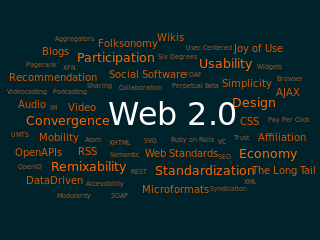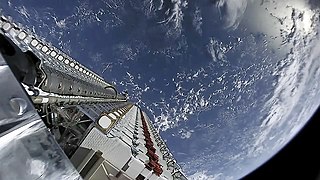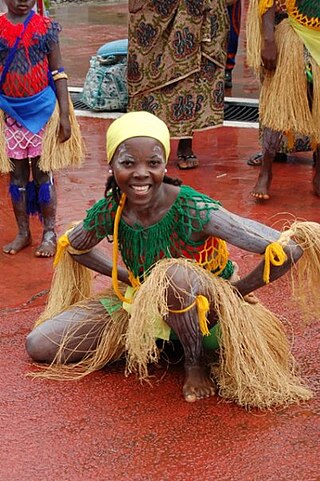Electronic services or e-services are services that make use of information and communication technologies (ICTs). The three main components of e-services are:
- service provider;
- service receiver; and
- the channels of service delivery
Computer reservation systems, or central reservation systems (CRS), are computerized systems used to store and retrieve information and conduct transactions related to air travel, hotels, car rental, or other activities. Originally designed and operated by airlines, CRSs were later extended for use by travel agencies, and global distribution systems (GDSs) to book and sell tickets for multiple airlines. Most airlines have outsourced their CRSs to GDS companies, which also enable consumer access through Internet gateways. Modern GDSs typically also allow users to book hotel rooms, rental cars, airline tickets as well as other activities and tours. They also provide access to railway reservations and bus reservations in some markets, although these are not always integrated with the main system. These are also used to relay computerized information for users in the hotel industry, making reservation and ensuring that the hotel is not overbooked.
Online hotel reservations are a popular method for booking hotel rooms. Travellers can book rooms on a computer by using online security to protect their privacy and financial information and by using several online travel agents to compare prices and facilities at different hotels.

Web 2.0 refers to websites that emphasize user-generated content, ease of use, participatory culture and interoperability for end users.
Online advertising, also known as online marketing, Internet advertising, digital advertising or web advertising, is a form of marketing and advertising that uses the Internet to promote products and services to audiences and platform users. Online advertising includes email marketing, search engine marketing (SEM), social media marketing, many types of display advertising, and mobile advertising. Advertisements are increasingly being delivered via automated software systems operating across multiple websites, media services and platforms, known as programmatic advertising.

A voucher is a bond of the redeemable transaction type which is worth a certain monetary value and which may be spent only for specific reasons or on specific goods. Examples include housing, travel, and food vouchers. The term voucher is also a synonym for receipt and is often used to refer to receipts used as evidence of, for example, the declaration that a service has been performed or that an expenditure has been made. Voucher is a tourist guide for using services with a guarantee of payment by the agency.
A virtual tour is a simulation of an existing location, usually composed of a sequence of videos, still images or 360-degree images. It may also use other multimedia elements such as sound effects, music, narration, text and floor map. It is distinguished from the use of live television to affect tele-tourism.

Amadeus IT Group, S.A. is a major Spanish multinational technology company that provides software solutions for the global travel and tourism industry. It is the world's leading provider of travel technology that focus on developing software for airlines, hotels, travel agencies, and other travel-related businesses to enhance their operations and customer experiences.

Digital marketing is the component of marketing that uses the Internet and online-based digital technologies such as desktop computers, mobile phones, and other digital media and platforms to promote products and services. Its development during the 1990s and 2000s changed the way brands and businesses use technology for marketing. As digital platforms became increasingly incorporated into marketing plans and everyday life, and as people increasingly used digital devices instead of visiting physical shops, digital marketing campaigns have become prevalent, employing combinations of search engine optimization (SEO), search engine marketing (SEM), content marketing, influencer marketing, content automation, campaign marketing, data-driven marketing, e-commerce marketing, social media marketing, social media optimization, e-mail direct marketing, display advertising, e-books, and optical disks and games have become commonplace. Digital marketing extends to non-Internet channels that provide digital media, such as television, mobile phones, callbacks, and on-hold mobile ringtones. The extension to non-Internet channels differentiates digital marketing from online marketing.
A travel website is a website that provides travel reviews, trip fares, or a combination of both. Over 1.5 billion people book travel per year, 70% of which is done online.

Accessible tourism is the ongoing endeavor to ensure tourist destinations, products, and services are accessible to all people, regardless of their physical or intellectual limitations, disabilities or age. It encompasses publicly and privately owned and operated tourist locations. The goal of accessible tourism is to create inclusivity of all including those traveling with children, people with disabilities, as well as seniors. This allows those with access requirements to be able to function as an independent using products following the universal design principle, a variety of services, and different environments.

Space industry refers to economic activities related to manufacturing components that go into outer space, delivering them to those regions, and related services. Owing to the prominence of the satellite-related activities, some sources use the term satellite industry interchangeably with the term space industry. The term space business has also been used. A narrow definition encompasses only hardware providers. This definition does not exclude certain activities, such as space tourism. Thus more broadly, space industry can be described as the companies involved in the space economy, and providing goods and services related to space. Space economy has been defined as "all public and private actors involved in developing and providing space-enabled products and services. It comprises a long value-added chaining, starting with research and development actors and manufacturers of space hardware and ending with the providers of space-enabled products and services to final users."
Alternate air ticket purchasing order systems allow for alternative ways of purchasing air tickets and GDS Connectivity not involving Internet or personal TA contact.

Tourism forms a small part of the national economy of Liberia. In the past, many tourists visited Liberia, mostly from the United States. Liberia's economy, including the tourist industry, was badly damaged by civil war in the country, and has only just started picking up with the launching of a Tourism Association in the country. Accommodation is now available to tourists, as is Liberia's transport infrastructure. One bright spot is surfing off Robertsport.
Corporate travel management is the function of managing a company’s strategic approach to travel, the negotiations with all vendors, day-to-day operation of the corporate travel program, traveler safety and security, credit-card management and travel and expenses ('T&E') data management.
Tourism Radio is a travel technology company based in Cape Town, South Africa, which produces location-based technology used in customized GPS in-car devices and IOS and Android mobile applications. The technology allows the user to take a tour of a city or pre-defined area, with geo-located, pre-recorded audio travel information triggering automatically as the user approaches them. The Tourism Radio in-car device plugs into a standard vehicle cigarette lighter and broadcasts a selection of local and international music along with location-specific travel information about the area the vehicle is driving through. Currently, there are approximately 3,300 of these devices used in South Africa, Namibia, New Zealand and Angola. Distribution of the devices to tourists is done in partnership with local Destination Marketing Organisations (DMOs) and car/motorhome rental agencies. The iOS and Android applications do not broadcast a selection of music, but use the same geo-location principle to give the user relevant travel information about the area they are in. This includes information about a general area or suburb, as well as information about specific points of interest, such as museums, art galleries, historical attractions, restaurants, nature walks, beaches, etc.

TravelSky Technology Limited is the dominant provider of information technology services to the Chinese air travel and tourism industries. Its clients include airlines, airports, air travel suppliers, travel agencies, individual and corporate travel consumers and cargo services. It is listed on the Hong Kong stock exchange and its majority shareholder or parent group is the China TravelSky Holding Company, a State-owned enterprise (SOE).
This is a bibliography of works related the subject of tourism.
Smart tourism is an important component of a smart city. Tourism is one of the major components of economic growth for communities worldwide. A key requirement of tourism has been to attract more and more tourists from different parts of the world. Smart tourism refers to the application of information and communication technology, such similar to the smart cities, for developing innovative tools and approaches to improve tourism. Smart tourism is reliant on core technologies such as ICT, mobile communication, cloud computing, artificial intelligence, and virtual reality. It supports integrated efforts at a destination to find innovative ways to collect and use data derived from physical infrastructure, social connectedness and organizational sources, and users in combination with advanced technologies to increase efficiency, sustainability, experiences. The information and communication technology tools used for smart tourism include IoT, mobile communication, cloud computing, and artificial intelligence. It combines physical, informational, social, and commercial infrastructure of tourism with such tools to provide smart tourism opportunities. The principles of smart tourism lie at enhancing tourism experiences, improve the efficiency of resource management, maximize destination competitiveness with an emphasis on sustainable aspects. It should also gather and distribute information to facilitate efficient allocation of tourism resources and integrate tourism supplies at a micro and macro level ensuring that the benefits are well distributed. They are observed to be effective in technologically advanced destinations such as smart cities.
Sensory tourism is a form of tourism, that caters for people with vision impairment. Those suffering from vision impairment face many difficulties based around mainstream tourism such as access to information, navigation, safety and the knowledge of others around them. This has caused the visionless members of society to travel much less than those with no vision impairment. Combining the theories behind tourism in terms of its psychology and its relation to the senses, an inclusive experience for the visually disabled was developed. Sensory tourism engages the physical and multi-sensory aspects of tourism, enhancing the tourism experience specifically for those with, but also benefitting those without vision impairment.







